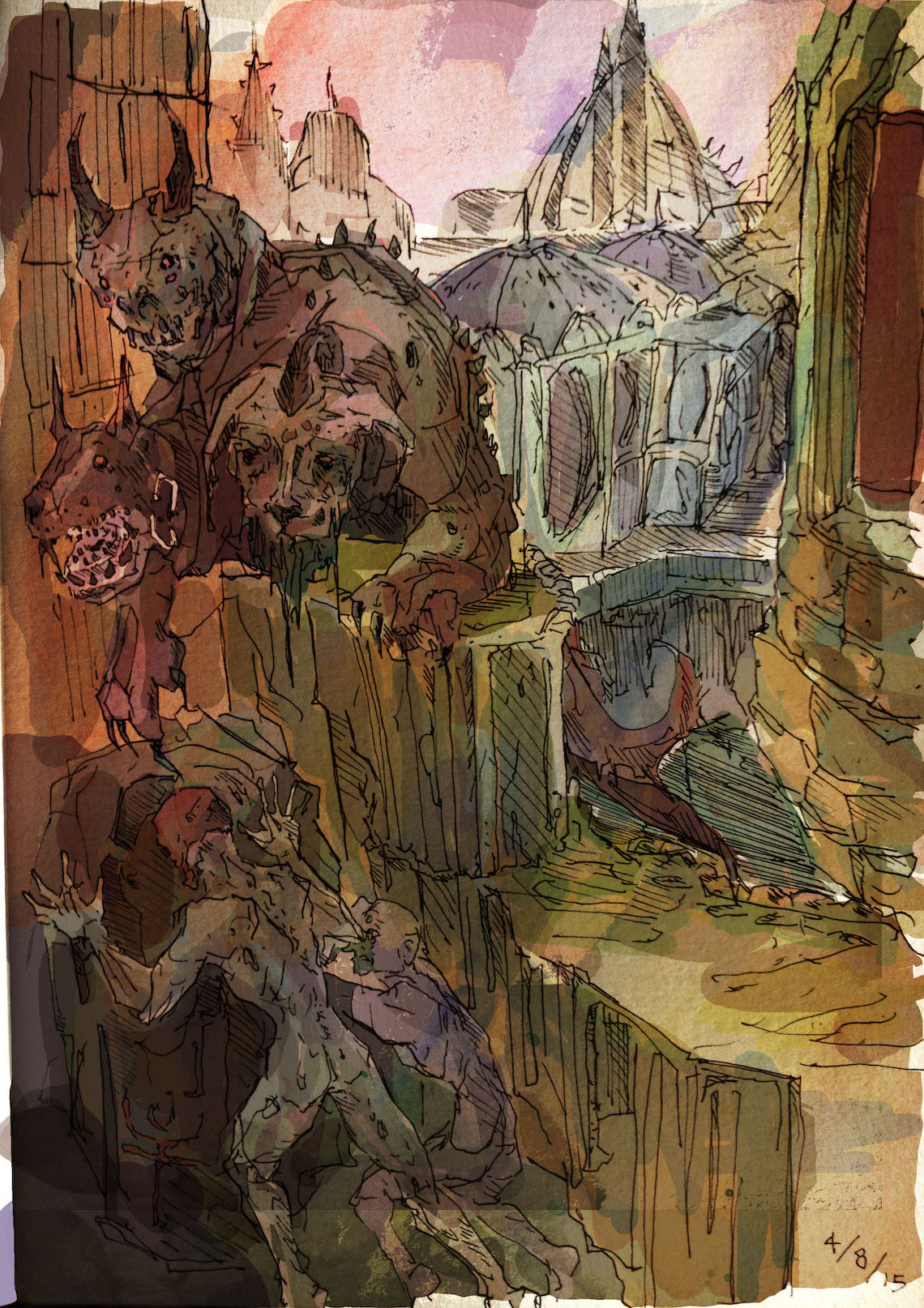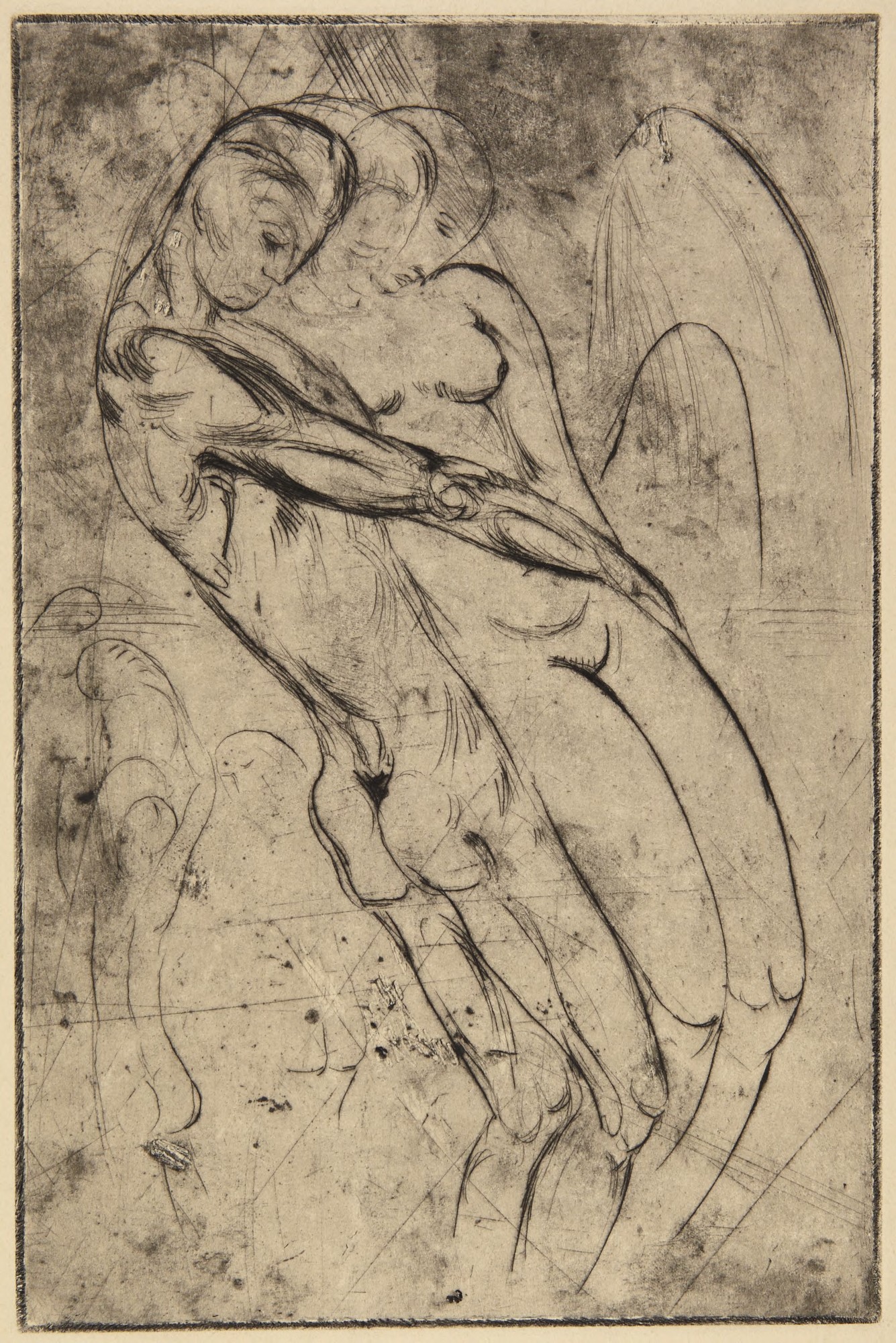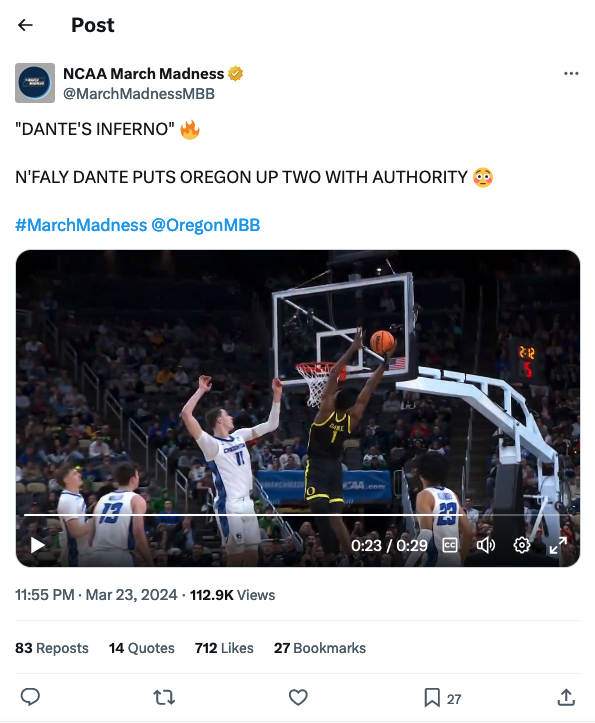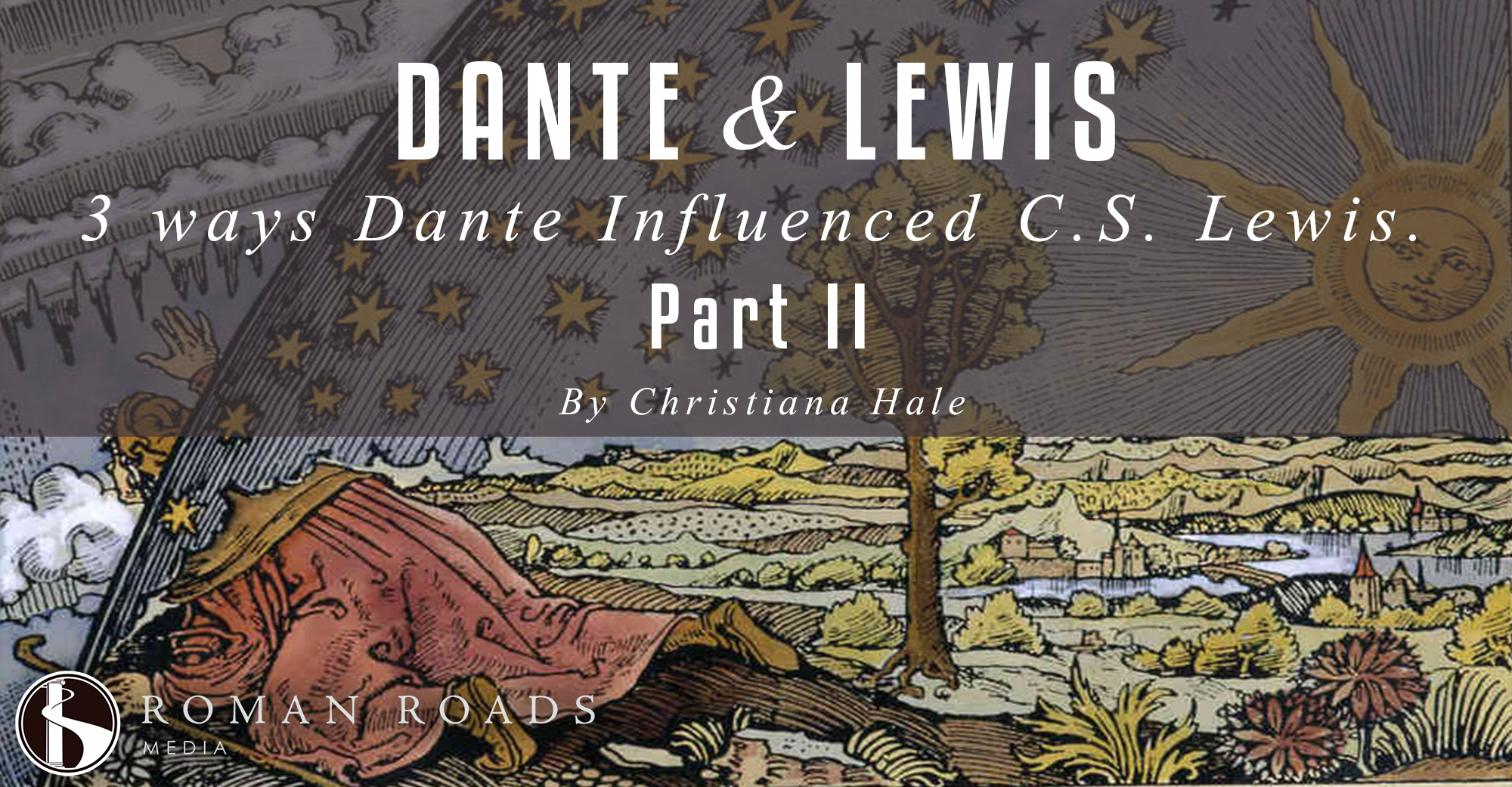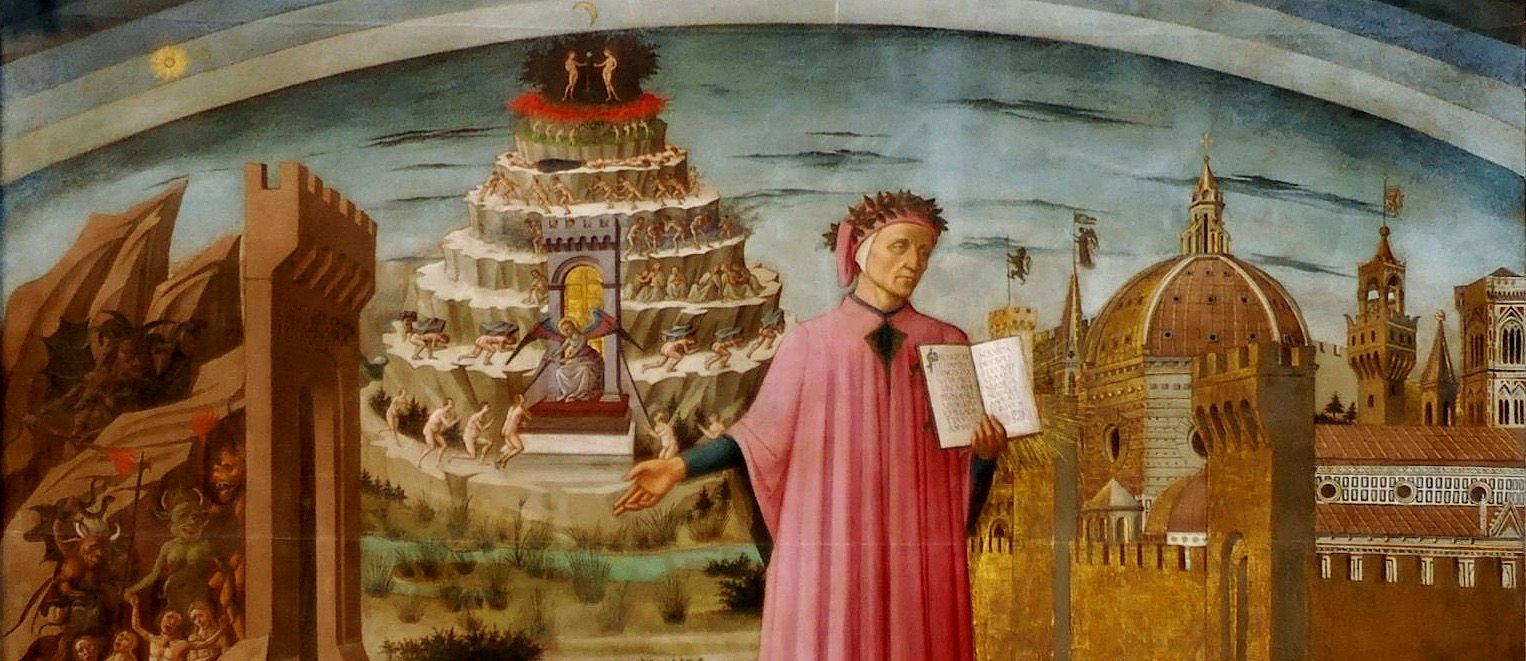Monaramis’s depictions of Dante Alighieri’s Inferno feature an array of muted colors that stem from an earthy palette. These are layered over the black contour of the scene (which appears to have been drawn by hand). The composition focuses on Cerberus as it imposes over a historical monument, seemingly intent to sniff out the two figures hiding in the foreground. The line-work of this piece is sketchy and heavily gestural, which reinforces the dynamism of the Canto depicted. — Monaramis Art, “Dante’s Inferno— La Divina Commedia,” Behance, 2015 (Retrieved March 28, 2024).
Wilhelm Lehmbruck’s Paolo and Francesca (1910s)
German artist Wilhelm Lehmbruck (1881-1919) created a depiction of Paolo Malatesta and Francesca Da Rimini, two real-life individuals featured in Dante’s Inferno for engaging in an adulterous relationship. The artist, using drypoint, depicts the affection of the two forbidden lovers in a sketchy and gestural manner that is enriched by the stark, geometrical line-work. — Wilhelm Lehmbruck, “Paolo and Francesca,” Princeton University Art Museum, 1910s (Retrieved March 28, 2024).
N’Faly Dante for the Oregon Ducks’ Basketball Team, NCAA Tournament, 2024
In the first round of the 2024 NCAA tournament, the Oregon Ducks, led by star center N’Faly Dante, knocked out South Carolina’s Gamecocks in an upset victory, 87-73. In the March 21, 2024, game, jubilant commentators couldn’t resist crying out “Dante’s Inferno” when Dante went up for a dunk in the second half. Here is the clip, courtesy of contributor Cooper VanDriessche:
The pun was repeated in the Oregon-Creighton match-up on March 23:
Contributed by Cooper VanDriessche (University of Notre Dame 2027)
“3 More Ways Dante Influenced Lewis | Part II”
“If you read my last post and are ready for more specifics on the ways in which C.S. Lewis was influenced by Dante Alighieri’s Divine Comedy in the writing of his Ransom Trilogy, you have come to the right place. The first part of this post can be found here and I do recommend reading that first by way of introduction. And off we go!
“Devils in Disguise: Hell on Malacandra As I said in part 1 of this post, there is a sense in which the trajectory of the Ransom Trilogy both parallels and contrasts that of Dante’s Comedy. Heaven and Hell each get thicker as you go through the Trilogy until they meet, at last, on the Silent Planet in the third book, That Hideous Strength. In this part, however, I am focusing on the parallels between the Inferno, Purgatorio, and Paradisio that exist with each book of Lewis’ trilogy.” —Christiana Hale, “3 More Ways Dante Influenced Lewis | Part II,” Roman Roadspress, June 26, 2015 (retrieved March 26, 2024)
“Dante’s Peek”
“The modern study of historical philology and the discovery of the family tree of Indo-European languages started in the late 18th century. The fuel that took fire from the spark of insight in William Jones’s astonishing paragraph had been gathered over generations, since about 1500, by scattered minds in Europe and South Asia.
“But before that? What did medieval Europeans know or think about their own language map? Latin still was spoken and written in the Church. And the tongues we know as Spanish, Italian, and French were in the air, obviously related to Latin and obviously brethren to one another.
“Dante, in exile about 1300, began a book meant to guide the development of Italian poetics. A language without a literature is a body without a head, and he meant to free his native people from the artistic dominance of Provençal troubadours and Parisian romance-spinners. He sought to winnow the dialects of Italy and discover the ideal medium for a true native Italian literature. (No prize for guessing he would find that ideal in his own Florentine.)
“He dropped it after a few chapters, but what he finished of ‘De vulgari eloquentia‘ contains an explanation in medieval terms of the linguistic map of Europe. It is in the introduction, setting the stage for the argument Dante intends to make.
“Dante begins by stating something obvious to him, and no doubt to his peers, that might seem strange to us. In most of the world around him, he says, there are two languages in the same place. Call them ‘low’ and ‘high,’ or ‘vulgar’ and ‘classical,’ or ‘common’ and ‘learned.’ Dante calls the first ‘vulgar’ or ‘vernacular.'” —”Dante’s Peek,” Etym Online, May 24, 2020 (retrieved March 21, 2024)
- 1
- 2
- 3
- …
- 147
- Next Page »
